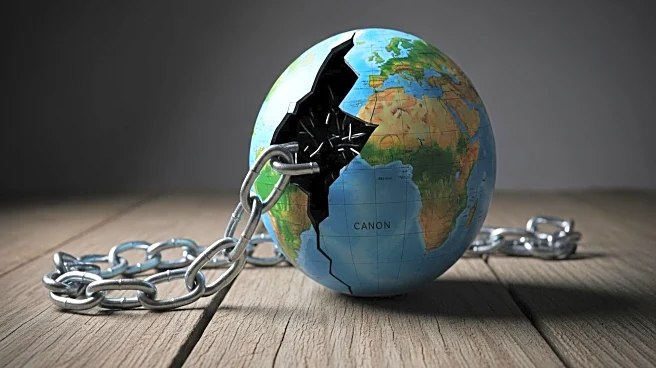What's Happening?
Ukrainian Foreign Minister Andriy Sybiga has dismissed Russian President Vladimir Putin's proposal for peace talks in Moscow, citing security concerns and the symbolic implications of such a meeting. Sybiga highlighted alternative locations, including Austria and the Vatican, as potential hosts for negotiations. The rejection comes amid continued Russian military aggression, with recent drone and missile attacks targeting Ukrainian infrastructure. The conflict persists as Ukraine seeks international support to counter Russian advances, while European leaders, including French President Emmanuel Macron, discuss potential postwar security guarantees for Ukraine.
Why It's Important?
The refusal to hold talks in Moscow underscores Ukraine's stance against perceived Russian dominance and highlights the ongoing challenges in achieving a diplomatic resolution. The conflict has significant implications for regional stability and international relations, with potential impacts on global energy markets and security dynamics. Ukraine's resistance to Russian proposals reflects broader geopolitical tensions and the complexities of negotiating peace amid active hostilities. The situation also tests the resolve and unity of Western allies in supporting Ukraine's sovereignty.
What's Next?
Ukraine will continue to seek diplomatic solutions while bolstering its defenses against Russian attacks. The international community, particularly European nations and the U.S., will play a crucial role in shaping the outcome of the conflict through military aid and diplomatic pressure. The potential for a ceasefire or peace agreement remains uncertain, with ongoing negotiations and strategic maneuvers by both sides. The evolving situation will require careful monitoring and adaptive strategies by all involved parties.









